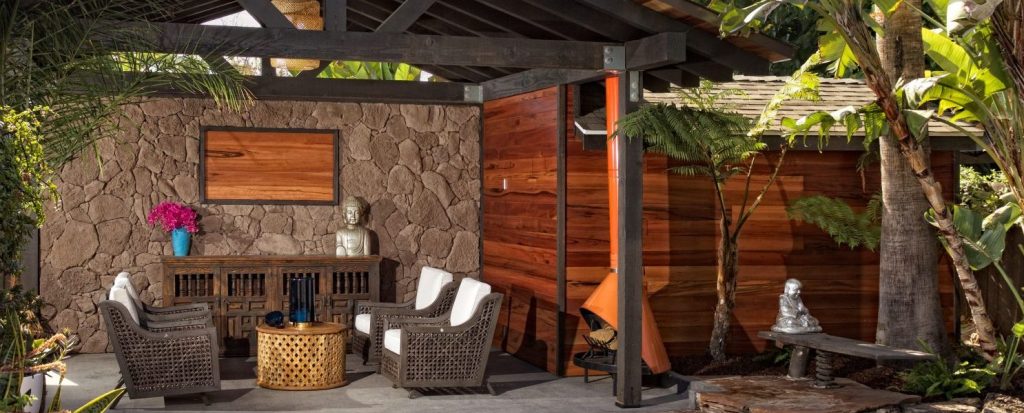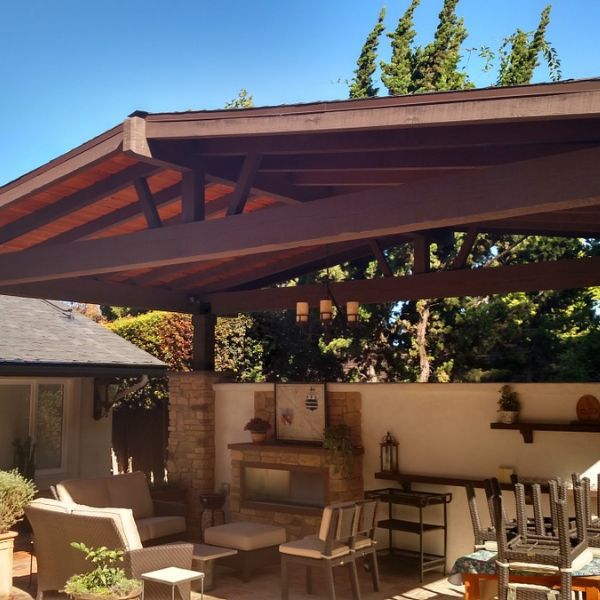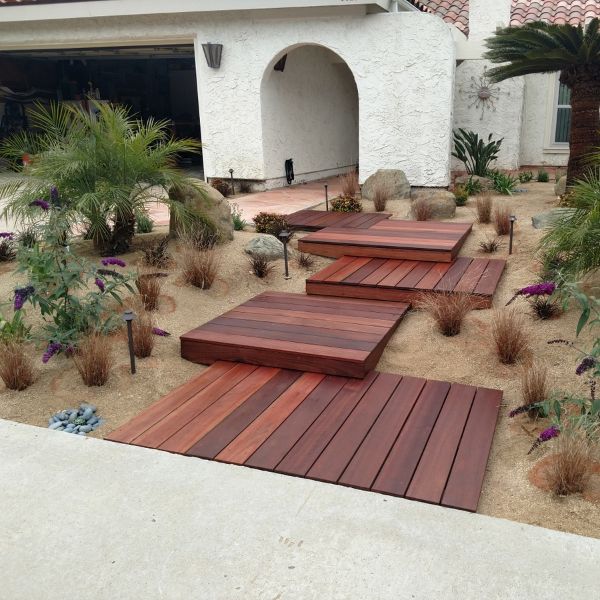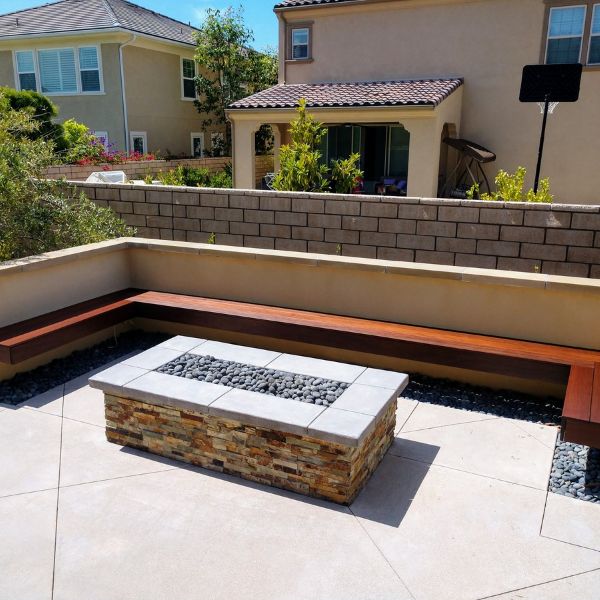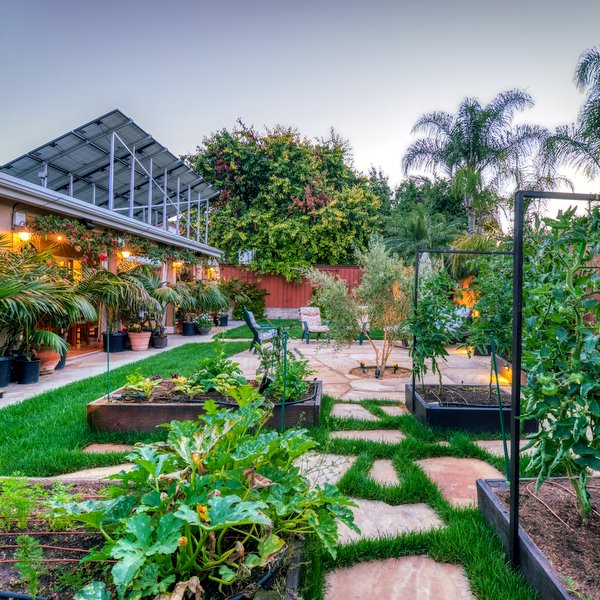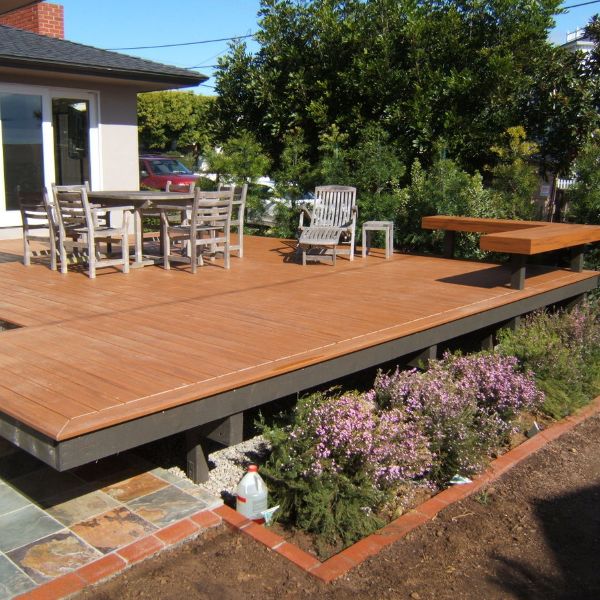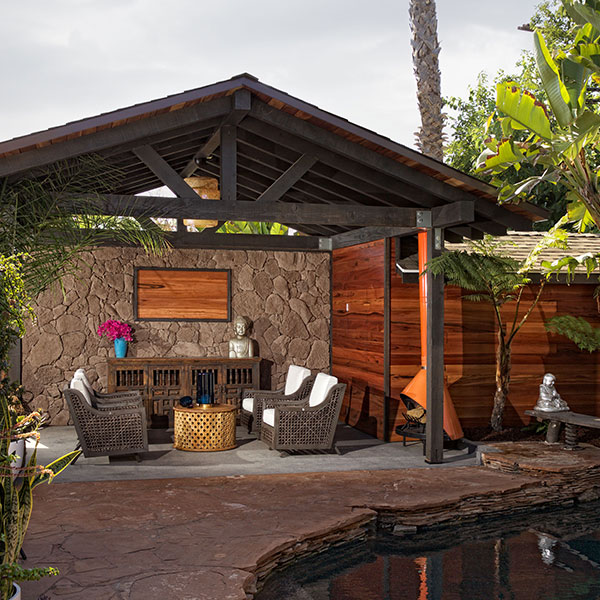Get the Look You Want for Your Sloped Paver!
Scaling the heights of design elegance just got a whole lot easier! If you’re about to embark on sloped paver projects, understanding the best materials for the job is critical. Pavers can provide an awe-inspiring aesthetic overlay, whether it be your driveway, patio, or pathway— and when used on a slope, they create a visual impact that’s second to none. However, navigating the world of paver materials can seem like a monumental task.
Fear not! Our San Diego landscape contractor, Jeff Wilson, will guide you through selecting the right materials to achieve stunning, durable results that will withstand time (and gravity). See how Jeff can conquer those slopes with style and pragmatism.
Paving Materials for Sloped Projects
When undertaking a sloped paver project, careful consideration must be given to the materials used. The durability and aesthetics of a project can be adversely affected by certain paving materials due to their unique properties. When it comes to selecting materials, you’ll want to take the following into account:
- Consider Materials’ Ability to Handle Water Drainage: When selecting paving materials for a sloped project, examine the material’s ability to handle water drainage. Stormwater can cause erosion and washouts on steep slopes if drainage isn’t handled properly. Choosing materials that promote effective drainage is essential to prevent potential injuries, vehicle damage, and subsurface erosion.
- Look at Durability and Longevity: Analyzing the durability and longevity of paving materials is vital when determining the lifespan of a sloped project. On steep slopes, erosion, and shifting subsurface can be problematic, so durable materials that maintain integrity over time should be selected.
- Evaluate Performance in Ice and Snow: For regions with winter weather, evaluating paving materials’ performance in ice and snow is paramount to reducing slip risks. Choosing materials that effectively handle winter conditions can minimize accidents and costly maintenance.
- Determine Eco-Friendliness: When selecting paving materials, it’s important to consider eco-friendly options to minimize ecological impact. Opting for sustainable, recycled, or permeable materials can reduce a sloped project’s environmental footprint.
Important Properties of Paver Materials
Several key properties should be taken into account when evaluating paver materials for sloped projects. These properties influence factors, such as stability, safety, durability, and overall aesthetic appeal.
- Traction: Look for paver materials that provide adequate traction to reduce the risk of slipping on sloped surfaces, especially in wet or icy conditions. Textured surfaces or materials with inherent slip-resistant properties are ideal choices.
- Flexibility: Sloped areas may experience slight shifting or settling over time due to natural ground movement or weather conditions. Paver materials with a degree of flexibility can better adapt to these changes without cracking or crumbling.
- Resistance to Erosion: Given the potential effects of stormwater on sloped surfaces, selecting materials that resist erosion is crucial. Look for materials that can withstand water flow and minimize the formation of deep crevices along the sides of driveways or paths.
- Maintenance Requirements: Consider the required maintenance for each paver material. Some materials may necessitate frequent sealing or repairs, which can become burdensome on a sloped project. Opting for materials with low maintenance needs will save both time and money in the long run.
- Aesthetics: Finally, consider the visual appeal of the paving material. Choose one that complements the overall design aesthetic you wish to achieve for your sloped project. This could involve selecting specific colors, textures, or patterns that enhance the visual impact of the space.
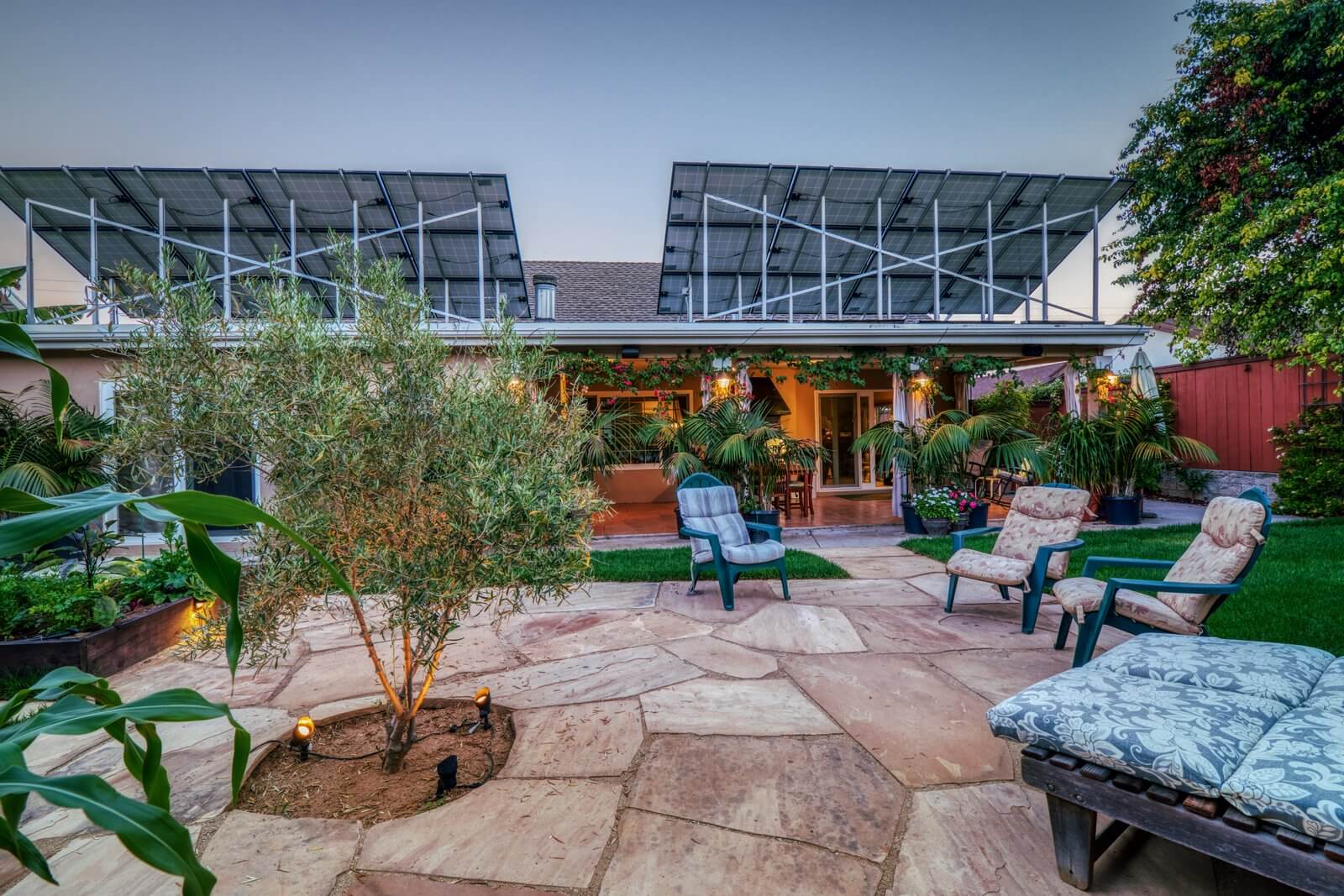
Top Choices for Sloped Paver Materials
Concrete Pavers
Concrete pavershave long been popular for various landscaping projects, including sloped driveways or walkways. They offer durability, and versatility, and come in various colors, shapes, and sizes. Concrete pavers can be interlocked to provide stability on slopes, and their textured surfaces offer excellent traction.
Brick Pavers
Traditional brick paversbring timeless charm to any sloped area. They offer a classic look and can withstand heavy loads. With their natural color variations and textured finishes, brick pavers create a warm and inviting atmosphere. However, it’s important to choose thicker bricks for added strength and stability on steeper slopes.
Natural Stone Pavers
Natural stone paversare an excellent option for those seeking a more organic and natural appearance. Stone materials like flagstone or travertine can create stunning visual effects on sloped areas. While they may be pricier, their durability and unique aesthetics make them a worthwhile investment.
Permeable Plastic Pavers
In recent years, permeable plastic pavershave emerged as an innovative and sustainable choice for sloped projects. Made from recycled HDPE (high-density polyethylene), these pavers offer excellent permeability, durability, and flexibility. They allow water to infiltrate through the surface, minimizing runoff and preventing erosion.
Considerations When Selecting Materials for Sloped Areas
When choosing materials for sloped areas, consider various factors that can impact your project’s successful implementation and functionality. Here are some key considerations:
- Drainage and Runoff: Slopes naturally pose challenges for water drainage, so selecting materials that contribute to effective runoff management is crucial. Permeable pavers allow water to pass through their surface and help prevent erosion caused by water accumulation.
- Soil Stability: Assessing the stability of the soil on the slope is essential before undertaking any paver project. In cases where the soil is loose or prone to erosion, using techniques such as geotextile reinforcement or soil stabilization methods may be necessary to ensure long-term stability.
- Safety: Safety should be a top priority when selecting paver materials for slopes. Look for options that provide traction and slip resistance, particularly if the sloped area will be used for vehicles or foot traffic. Coarse-finished surfaces or textured pavers offer enhanced grip and reduce the risk of accidents.
- Compliance With Regulations: Check with local authorities or homeowners’ associations for any regulations or permits required when paving on a steep slope. It’s important to ensure that your chosen materials comply with these guidelines to avoid any legal issues down the line.
Weather Conditions and Traffic Load Impact
When selecting paver materials for a sloped area, two key factors must be considered: weather conditions and traffic load. The prevailing climate and the amount of expected traffic both influence material choice.
Regional weather patternsaffect paver durability and performance. Freezing winters require materials that resist ice and handle freeze-thaw cycles well. High rainfall areas need permeable pavers that drain effectively to minimize standing water damage. Weather impacts must be accounted for when choosing pavers.
Additionally, the anticipated traffic loadshould guide material selection. Heavier loads from vehicles or machinery require more durable pavers that resist pressure and wear over time. If heavy traffic is expected, the most robust paver materials are best to withstand the load.
In areas where freezing temperatures are common, concrete pavers may not be the best choice due to their susceptibility to cracking under extreme temperature fluctuations. Instead, materials in permeable plastic pavers are designed to resist freeze-thaw cycles, making them a more suitable option for areas with harsh winters.
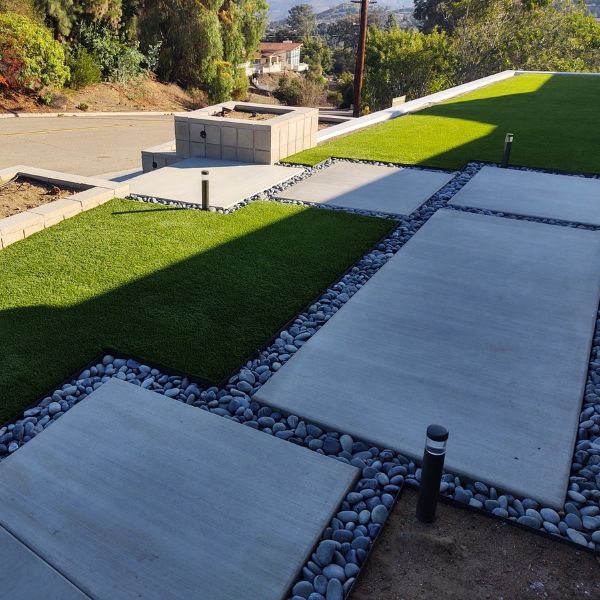
Advantages of Paving Sloped Areas
Paving sloped areas offers several advantages, making it an appealing choice for various projects. Whether you have a residential driveway, a patio, or a commercial space, opting for paving on a slope can bring numerous benefits:
- Paving sloped areas can improve aesthetics and visual appealby creating a polished, finished look that enhances the beauty of the space.
- Paving adds a sense of sophistication and elegance, making the area more inviting.
- Pavingincreases the usability of sloped areas by eliminating the challenges of uneven terrain and providing a stable, easy-to-navigate surface.
- Paving promotes safety and reduces accidentsby minimizing the risk of slips, trips, and falls on the slope. This is particularly important in areas with high pedestrian or vehicle traffic.
Suitable Materials for Various Sloped Designs
Selecting paving materials for sloped areas requires balancing factors of stability, erosion control, aesthetics, and especially safety. The optimal material will match the slope degree and design goals.
Steep Slopes
For steep inclinesprone to heavy runoff, permeable plastic pavers are an excellent choice. Their high permeability manages the stormwater flow, while durability withstands weather and wear. Plastic pavers provide a stable, long-lasting solution for steep slopes.
Moderate Slopes
On moderate slopes, concrete pavers offer versatility. Available in various shapes, sizes, and colors, concrete provides visual appeal and traction. Concrete is also relatively easy to install and maintain.
Gentle Slopes
For gentle slopeswhere aesthetics are important, natural stone creates an elegant look. Materials like bluestone and flagstone add sophistication with their unique colors and textures. However, this requires specialized installation to ensure stability.
Get Started on Your Sloped Paver Project
Ready to create a beautiful and functional paved space for your sloped area? Our team of experts can help guide you through the process of selecting optimal materials, planning the perfect design, and executing a stunning installation that enhances your unique landscape.
Contact Wilson Woodscapeat (619) 838-1398today to schedule a free consultation. Your dream outdoor living area is closer than you think.

